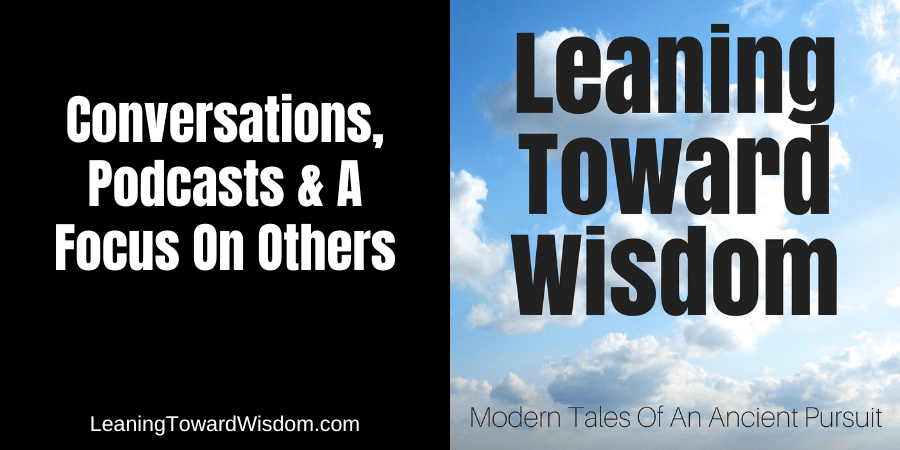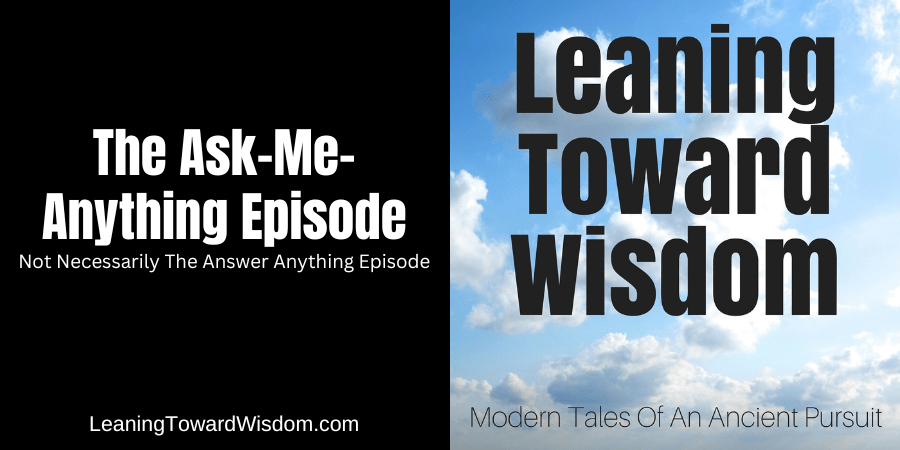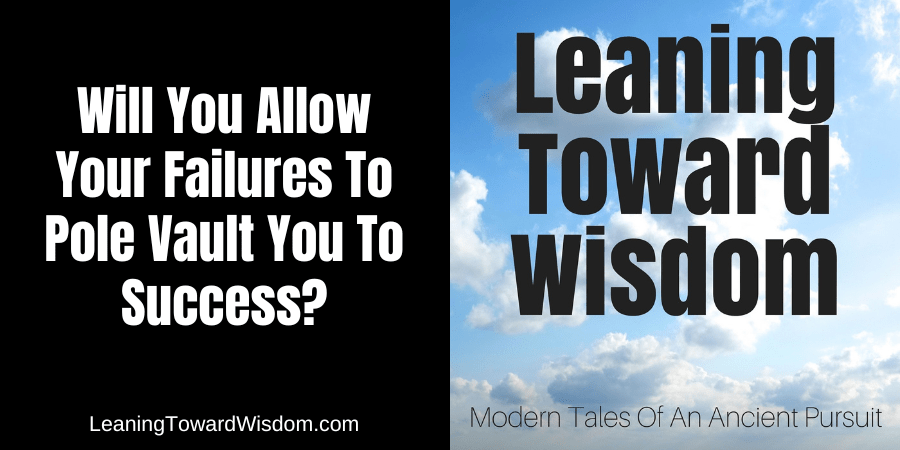Why Do You Want What You Want?
Podcast: Play in new window | Download (Duration: 49:48 — 45.6MB)
Subscribe: Apple Podcasts | Spotify | iHeartRadio | Email | RSS | More
We’re closing in on saying goodbye to The Yellow Studio version 2.0. It’s where every podcast episode I’ve ever produced (other than a few field recordings) was recorded. But I’m looking forward to the next chapter, The Yellow Studio version 3.0.
Lots of people want more money, but they don’t necessarily have any specific thing they want to do with it. They just think having more of it will make them happy. Or maybe they do know what they want – or think they do. A nicer house. A new car. Exotic vacations. Fancier restaurants to frequent.
Many people want more recognition, but they don’t know why. They envy famous people. They imagine what life might be like hearing applause or being chased for an autograph.
Everybody wants something. Everybody wants many somethings. We all want a lot of things.
Does that speak to our lack or our lack of gratitude? Or neither? Maybe it just speaks to our discontentment with whatever the status quo is. Warren Buffett is worth $87 billion, but he’s still working every day to achieve and amass more. And he’s giving away 99% of it so he’s not doing it to lavish anything on himself. Reports claim he lives a fairly modest lifestyle. Ridiculously modest by the standards you’d expect of somebody with his income. So why does he want more?
Why do you want more?
Because you don’t yet have it. And when you get it, it won’t be enough. Never is.
I’m gonna start by using LTW as a case study.
Leaning Toward Wisdom kinda sorta officially began on Tuesday, October 30, 2001, as a blog. But I was posting content online beginning in the fall of 1996 and using the moniker, “Leaning Toward Wisdom.” It was all done in HTML and the domain name wasn’t LTW. This was before I was domain name savvy. Proved by the fact that I didn’t register my own name domain until December 1999. It would be February 2005 before I’d snag LTW. I’m a slow learner.
Why did I want to start journaling (we didn’t call it blogging at the beginning) under the guise of LTW? I was approaching my 40th birthday when I began to chronicle things. Random things. I was all over the board. No focus. Just a bunch of scatter-shooting of thoughts, opinions and takes on whatever was on my mind. I had two kids in high school with my oldest having already turned 16.
I can’t remember why I wanted to do it at the very beginning. Maybe it’s because the next year I would turn 40. Maybe it’s because I could sense the high school days of my kids wasn’t going to last more than a couple of more years. I was operating a retail company and putting in the typical long hours required of running any multi-million dollar enterprise. Maybe the journaling was therapeutic. I’m certain it was, but I’m old now and can’t really remember all the details of the beginning. Give me a break. The Internet was young and so was I (reasonably so).
Within a year I had put an audio file on my HTML site. No, it wasn’t podcasting. We didn’t yet know what that was. Keep in mind, Apple iTunes was launched on January 9, 2001. It would be about 3 years before the term podcasting would enter in 2004. But I do remember hearing about and reading about audio blogging. That’s what prompted some of my first audio files going up on my horrible website. Hard drive space was hard to come by, and drives were expensive…so no, I do not have those original files. When I abandoned that original website – which I can’t remember what it was because I didn’t keep any of those original sites – all the content went away. Probably a blessing. I’m sure the stuff was dreadful.
But the point is the question – why did I want what I wanted?
Expression? Brain dumping? Venting? Chronicling?
I suppose all those things were on my mind. I can tell you what was NOT on my mind. Building an audience. Only in my business endeavors did I really want to do that (for obvious reasons). Fast forward to the beginning of 2005 and I was much clearer in what I wanted. I registered the LTW domain name and started the podcast. WordPress wasn’t commonplace, but it was around. I found a local guy who did freelance web work on something called Expression Engine. It was a CMS like WordPress, but it was on the scene at least 2 years before WordPress. I think I spent a few hundred bucks to have the guy design me a site because I knew nothing about CMS and I wasn’t interested in continuing the old HTML strategy. I was using Blogger at this point and I had been really regular in using it, linking it to my ugly long-winded URL where I had created an ugly HTML site.
I liked the design the guy gave me, but my blogging and audio blogging slowed to a crawl after I got the design in place. I was busy with work and family. I just didn’t have time to figure out how to pilot this stupid new web-based software. The site began to grow moss, weeds, and thorns. I had so wanted a new, snazzy design — or thought I did. Instead, I found myself reverting back to the analog world where I was writing in my notebooks.
Why did I want a new, cool design? Because I thought it would have the opposite effect. I thought if I had a site that was more captivating to ME, that I’d create more content. I still subscribe to that idea. In fact, whenever friends ask me for a bit of web help (no, I’m not a designer), I urge them to get a site that’s not perfect, but one they’re reasonably proud of — because they’ll be spending more time looking at it than anybody else. And in my experience, especially for folks just starting out with their first site, if people like their site they’ll spend more time pumping out content. It’s like the photographic evidence of our first child. We capture everything. By the time the second kid rolls in, we’re lucky if we pay much attention to all the small moments.
So I know some of the why’s, but not all of them. But I do know the important ones, I think. Mostly, by the time I was really approaching LTW with more strategic intention, I only cared about one thing. Chronicling ideas for my kids. By now I was 45 and my oldest child was 22. That’s very different than being 39 with an oldest child who is 16. And some important things had happened in those intervening years, too. I was about 5 years into a new role of leadership at church. I was still running a retailing company and I was pushing as hard as ever professionally. I’ve never been accused of lacking drive. 😉
But something was happening. The church work was taking priority. My kids were nearing the end of their college careers. I knew what was likely to happen next. Marriage. Launching their own careers and lives. And I knew we were close to emptying the nest. It wasn’t a mid-life crisis. I don’t feel I’ve ever experienced that. Mostly because it feels like every phase of my life has experienced some degree of “crisis.” 😀
Mortality is ever present. I’m weird. I get it. I think about subjects that depress others. Like death. It’s inevitable. Yours, too. (Sorry, did that come as a surprise?) 😉
But it started with a more positive, although for me depressing thought (because of what might have been) — what if our great grandparents had been able to chronicle their lives? How cool would that be? But how sad, or angry, might you be if the technology had been available to your grandparents and they didn’t do it?
I was having these thoughts before the mobile revolution. Before everybody’s cell phone contained a great camera and mic. I was thinking like this when podcasting was harder, but totally doable – even for a non-techie.
And I’m a communicator. So it was deeper than an urge. It was more of a “I gotta do this” kind of a thing. So I did. Mostly to capture some things for my now grown up kids. Neither of them was married when I started. Rhonda and I now have 5 grandkids – four boys and one girl. What began as a project mostly for my kids (and my wife, only in that when I’m gone – yes, that’s a metaphor for being DEAD) has now grown to expand 5 grandkids.
Along the way, you joined me somehow. I recruited you. Coerced you. Bribed you. Begged you. Or you naturally found LTW so entertaining, compelling, or disturbing that you couldn’t resist. Well, whatever the reason — I’m thankful. And appreciative. Thank you!
I knew what I wanted when I began. It’s changed a bit, but only because the tribe – my tribe – has increased. But I was clear at the outset why I was doing it. And Simon Sinek has made a career of being the guy most people think invented the one-word question, “Why?” It’s a great question and a better answer. I know my why with LTW.
I’ve known all along why I wanted to produce LTW. Like that Westie dog attacking that ice cream cone (the graphic for today’s show), I was clear about the reward. For myself. It was an entirely selfish endeavor. I wanted to pass on what I wanted to pass on. I didn’t ask my kids about it. Rhonda and I have never talked about it. Truth is, I’ve never asked any of them if they’ve ever listened to a single episode. I rather doubt they have. And that’s fine. I understand it. But I also know how people are when somebody dies. Photos, notes, and possessions that prior held not much meaning become very important. So it’s likely to go with LTW and that’s perfectly fine. Probably as it should be.
Like I said, there are many older folks I once knew – and many more I never was able to meet because they died before my birth (or my ability to remember) – who I wish I could hear speak. That thought of a grandfather or great grandfather (or mother) recording some thoughts on audio or video fascinates me. What a gift it would be, right? LTW is my gift to my family. You’re crashing our party and that’s cool.
Most people think about what they want in terms of jobs, incomes, and possessions. Increasingly, the younger generation is thinking in terms of experiences, too. But so do some older folks who love to travel. We want what we want. We just seem to rarely give deep thought as to why.
Why do you want THAT job and this one?
Why do you want to earn THAT amount of money?
Why do you want THAT car instead of the one you’ve got?
Why do you want to take THAT trip instead of some other trip? Or instead of staying home?
“Why?” is a great question. But one not always easily answered. The Westie wants ice cream for the same reason you do. It tastes great.
Some time ago I was helping a fella out with some free counsel. Career counsel. He tossed out a number. The income he hoped to one day achieve. I asked him, “Have you ever earned that amount?”
“No,” he said. I dug deeper, “Have you ever earned anything close to that?”
“No.”
“Why did you settle on that amount then?” I asked.
Long pause.
“I don’t know. It just feels like an amount that would be right,” he continued.
“Be right how?” He had now really piqued my curiosity how he had come to this specific annual amount.
“Oh, I don’t know. It just seems like a good amount that would give me the life I want,” he concluded.
Well, I couldn’t leave well enough alone so I continued to probe. For the next half-hour or so we talked with me pressing him with questions. Turns out other than a newer model car there wasn’t any specific motivation behind the number. His why turned out to be closely associated with his self-esteem. His perception of himself was that until he was able to earn that amount, he wasn’t as successful as he felt he should be. And it wasn’t based on his own views, but on how he perceived he stacked up to other people at his stage of life. He was busy comparing himself to others and he didn’t think he measured up or would measure up – until or unless he earned that amount.
Within a few miles of where I live are many multi-million dollar houses. I don’t live in a multi-million dollar house. And for good reason. I can’t afford it.
All over town, I see big, foreign cars that any car guy (or gal) would love to drive (or own). Cars costing $80,000 or more are quite commonplace in Dallas/Ft. Worth. The most expensive car I’ve ever owned was about $32,000 and I thought that was ridiculous. Why? Because I can’t afford to drive an $80,000 or $100,00 car. I know guys who custom order Bentley’s – a quarter of a million bucks for a car! How do I stack up? Well, I’m not even in that deck of cards. These folks are playing chess while over here playing checkers.
Would it be fun to play chess? I don’t know. Maybe. But I’m not losing any sleep over it. Because I know something you may have yet learned. Not because I’m smarter, but I may be older. Much older. A man’s or woman’s worth isn’t measured in dollars. You know it’s true even though you may not always act like it. Or think like it.
Sure, a person’s value professionally can be mostly is measured in dollars. Warren Buffett is worth 83 or 87 billion because he has made many other people very wealthy. His investment acumen (and his equity position) warrant the money he earns. Ditto for every other business owner or CEO or Chairman. You may not think the CEO of Exxon/Mobil is worth $25 million a year, but if he can get it, then that’s what he’s worth. Dollar value is based solely on what people will pay. Nothing else. But dollar value is just one angle of the thing.
I’m confident to think LTW is a pretty decent piece of content. But there are no dollar values assigned because LTW isn’t a business. It doesn’t earn a dime. So does that mean it’s worthless? You tell me. It’s worth something to me. When I’m dead it’ll be worth even more to the people who love me.
So it goes.
Social media is terrific. I’ve always thought so.
Doesn’t mean there aren’t downsides. Most notably the drive behind why some people want what they want. The social media platforms often help drive people’s desires. Money, looks, trips, all the rest. It’s the consumerism that drives world economies. Buying stuff makes the world go round. Human nature isn’t going to disappoint though. People will always want to buy things they don’t yet have. Or better than what they currently do. Nothing inherently bad about that.
Wisdom is largely restraint. Self-control. It begins with controlling our thoughts, which drive our feelings and desires.
You see a friend post pictures of a trip overseas on Instagram. You think, “I’ve never been out of the country. Man, it would be so nice to go see Ireland.” And envy and morph quickly into jealousy. All the while thinking, “If we were doing better financially we could make a trip like that.” Funny thing is, we may have never thought about taking a such before seeing that Instagram post. That’s the downside of social media, but it’s not the medium’s fault. It’s our fault for being so out of touch with why we want what we want. And understanding if it’s even good for us.
I’m engaged in conversation with somebody and the talk turns specifically to dollars. Specially, what we’d do with extra money. It wasn’t about any specific amount of money. He brought up a story about a person who won a big lottery. I mentioned some specific things that I’d so with extra money. They were ridiculously simple, unsexy things. Things most people would scoff at.
A nice steak dinner with Rhonda. I don’t even care for steak, but she loves it.
A few house renovations. There’s always a few things that could use shoring up.
A piece of audio gear I don’t need.
That was about the extent of it. His list wasn’t much better although it was a bit different than mine. Ironically, neither of us mentioned real life-changing things.
What would your list look like? Suppose you got an extra $1,000 to do with as you pleased. How would you spend it? Why would you want what you want?
Look at my 3. A steak dinner because Rhonda would love it. House renovations because we could always use it. Audio gear for me because I enjoy it. I at least knew why I named the ones I named. I’m not saying they’re smart, or wise. Or that I might not change my mind if I had the money in hand.
It’s not money that matters, but that seems to occupy us most. I get it. We all need it. Mostly, we feel like we need more. Why? Frankly, because so often times we need to stay up with the crowd. Which crowd? Our crowd. Whomever the crowd may be.
Significance. Respect. Love. Ability to help. Deep conversation. These are just a few things that I want. Why?
Here’s the punchline to the show. Because these are the things I value. Because they make me feel useful. And feeling useful means I’m making a difference. And making a difference feeds whatever beast lies within. For me – and I suspect for you, too – the fuel we most crave is whatever fills us up.
Some people are shopaholics. Shopping makes them feel better. It fills them. Sadly, it maxes out their credit cards, too. It’s destructive behavior attempting to fill a void it’s unable to fill. Like drugs or alcohol. Or any other destructive behavior. Short-term enjoyment or pleasure followed by the negative consequence that destroys us. Sometimes slowly. Sometimes not.
Some people are thrill chasers. I don’t understand rock climbers. I hate heights. Nothing about that activity speaks to me. I’ll watch it in amazement. But no thanks! They want it because they love everything about it. The risk is worth the reward because the value proposition is extraordinary for them.
We pursue and chase what we value. We want what we want because something about it is important to us.
Should we accept that at face value? No. There’s going to be some piece of audio gear I want. Always. Do I need it? Will it make a difference in my life? No. I can just imagine having it though and in that moment I can think, “That’d be nice.”
Would a few house renovations be nice? Sure. Some might even in time become necessary. It’s a much more practical want.
Would an expensive steak dinner be nice? Yes, for Rhonda. And if she’s happy, then I’m happier. And it’d likely be the cheapest of the 3 so I’m going with that one. 😀 (I’m nothing if not practical)
Largely I think these ideas are worth considering because it boils down so often to what do I want for myself versus what do I want on behalf of others. It’s the lead that I buried all show long, until now. The why is an important question, but maybe the bigger one is the pronoun contained in the question. Why do YOU want what YOU want?
Well, because it’s all about YOU, right? No, it’s about ME. Wait a minute. Who is this about? We all think – or know – we’re the most important person on the planet. The old adage about WII-FM is true. It’s the station we all have on our preset. What’s In It For Me.
If you think that Westie is gonna share that ice cream, then you don’t know Westies very well. Or any dog. Or any human. We’re all largely selfish. Yes, even those of us chasing significance and other things that appear so noble. Maybe they’re not noble at all. Maybe they’re supremely selfish.
Think about it. Significance is a pretty big thing. Who’s significance am I worried about? Not yours. I’ve got my own to fret over. 😀 Don’t get me wrong. I hope you are significant. Maybe better said, I hope you feel significant. But I don’t care about yours as much as I do mine. Besides, I figure you’re worrying about your own so I don’t have to. I just want you to worry about mine, with me! So it goes.
Seriously, it’s probably wise to question why we want what we want. And to ask ourselves what’s being accomplished if we get it. Or what we’ll miss if we don’t. There’s empirical evidence that when it comes to income we migrate back to some type of set point within a short period of time. We think the big raise will solve all our problems. Only to find within a few short months that those problems persist. The more things change the more they remain the same.

Please tell a friend about the podcast!
Why Do You Want What You Want? Read More »






 Carl is dragon number 3 inside The Yellow Studio. The first was found many years ago in Clearwater, Florida while on a business trip. I found him in a store one day and kept going back daily wrestling with whether or not to purchase him. He’s ceramic and heavy. I was flying home and traveling as light as possible. By end of my last day there, I intentionally waited until close to closing time, walked in, grabbed him and made the store owner an offer, which he accepted. I can’t remember how much he was priced originally or why I even decided he might not be worth that amount, but pleased with my discounted price I brought him home to the Yellow Studio where he’s been a fixture for many years (over 20). You can likely figure out why I liked him so much. 😉
Carl is dragon number 3 inside The Yellow Studio. The first was found many years ago in Clearwater, Florida while on a business trip. I found him in a store one day and kept going back daily wrestling with whether or not to purchase him. He’s ceramic and heavy. I was flying home and traveling as light as possible. By end of my last day there, I intentionally waited until close to closing time, walked in, grabbed him and made the store owner an offer, which he accepted. I can’t remember how much he was priced originally or why I even decided he might not be worth that amount, but pleased with my discounted price I brought him home to the Yellow Studio where he’s been a fixture for many years (over 20). You can likely figure out why I liked him so much. 😉